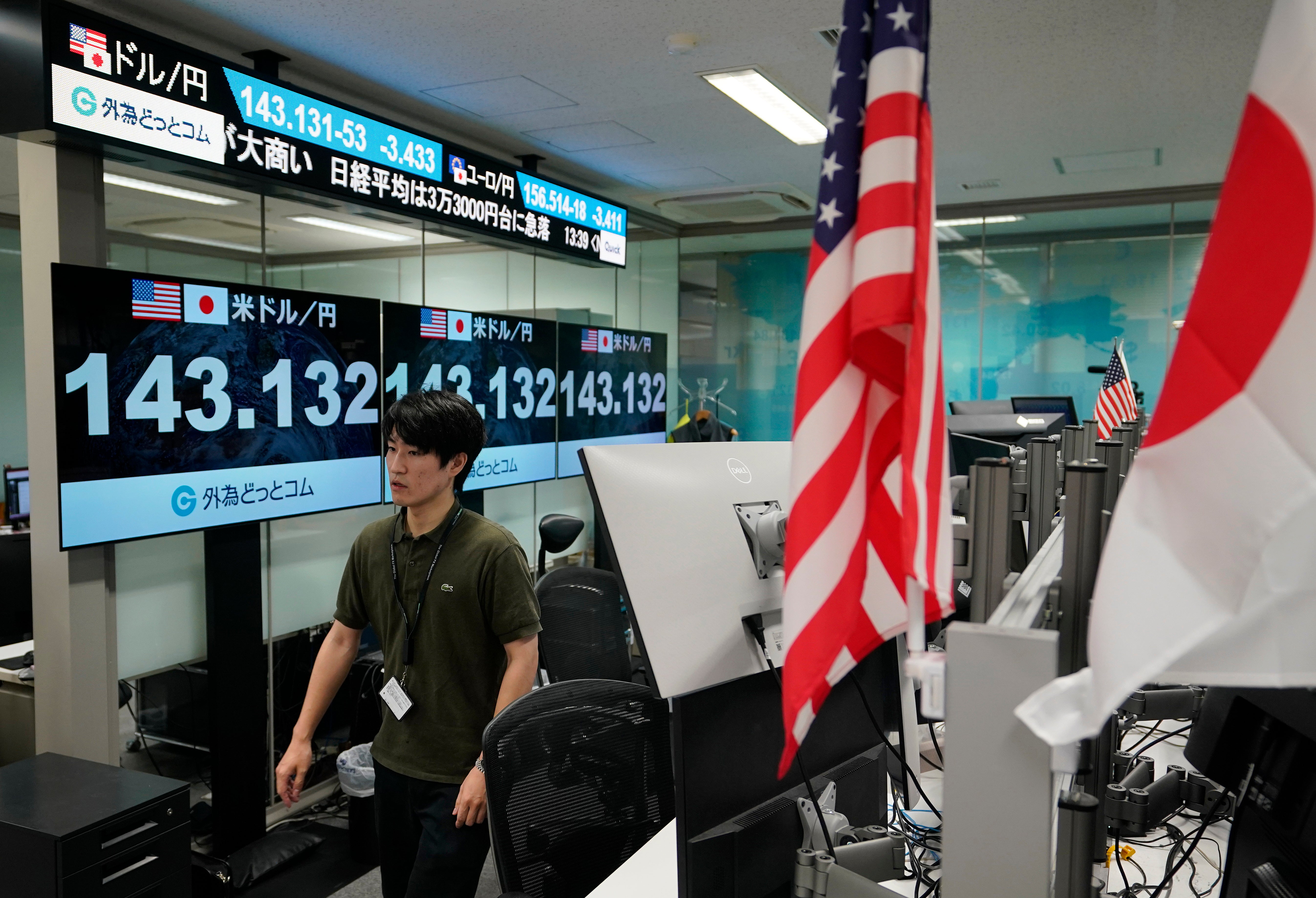Asia stocks plunge as fears of recession grow
Stock markets are nosediving in many major Asian economies

Your support helps us to tell the story
From reproductive rights to climate change to Big Tech, The Independent is on the ground when the story is developing. Whether it's investigating the financials of Elon Musk's pro-Trump PAC or producing our latest documentary, 'The A Word', which shines a light on the American women fighting for reproductive rights, we know how important it is to parse out the facts from the messaging.
At such a critical moment in US history, we need reporters on the ground. Your donation allows us to keep sending journalists to speak to both sides of the story.
The Independent is trusted by Americans across the entire political spectrum. And unlike many other quality news outlets, we choose not to lock Americans out of our reporting and analysis with paywalls. We believe quality journalism should be available to everyone, paid for by those who can afford it.
Your support makes all the difference.Taiwan’s stock exchange has called an urgent press conference to calm investor fears after markets in many major Asian economies plunged on Monday.
Stocks fell over seven per cent in morning trade in Taiwan, with tech shares, including of TSMC, nosediving as investors sold off their stakes in one of Asia’s top performing markets this year.
Japan’s benchmark Nikkei 225 stock index plunged 12.4 per cent later in the day, closing down 4,451 points at 31,458 on Monday amid fears of a recession in the US.
South Korea’s Kospi also plunged by over seven per cent while Singapore’s Straits Times Index and Australia’s All Ordinaries slid more than three per cent, reported Nikkei Asia.
A recent report showing that hiring by US employers last month slowed more than expected has convulsed financial markets, countering the euphoria that had taken the Nikkei to an all-times high of over 42,000 in recent weeks.
The Nikkei 225 has also dropped 5.8 per cent on Friday, making this its worst two-day decline ever.
Its worst single-day rout was a plunge of 3,836 points, or 14.9 per cent, on a day dubbed “Black Monday” in October 1987.
Share prices have fallen since the Bank of Japan raised its benchmark interest rate on Wednesday. The Nikkei is now down 3.8 per cent from a year ago.
A key factor that prompted the interest rate hike was prolonged weakness of the Japanese yen, which pushed inflation to above the central bank’s two per cent inflation target.
Early on Monday, the dollar was trading at ¥142.39 (¥187.6 to the pound), down from 146.45 late on Friday and sharply below the mark of ¥160 a few weeks ago.
Investors are selling Japanese stocks due to concerns about the US market heading towards a recession, said Naka Matsuzawa, chief strategist at Nomura Securities.
"The fall is not really happening due to Japan-specific reasons," he told Nikkei Asia. "Markets are still trying to find the bottom.”
He suggested taking a “wait and see approach” until US stocks show resilience.
Taiwan’s Taiex lost 8.4 per cent as the TSMC, the world’s biggest chip maker, dropped 9.8 per cent.
Explaining the drop, Kyle Rodda, senior market analyst at Capital, told Bloomberg: “We are basically seeing a mass deleveraging as investors sell assets to fund their losses. The rapidity of the move has caught me off guard; there’s a lot of panic selling now, which is what causes these non-linear reactions in asset prices to pretty straightforward fundamental dynamics.”
Stocks tumbled around the world on Friday after weaker than expected employment data fuelled worries that the US economy could be cracking under the weight of high interest rates meant to tame inflation.
Israeli shares fell sharply, reflecting the threat of an attack from Iran in retaliation for the assassination of Hamas leader Ismail Haniyeh in Tehran last week.
The benchmark TA-35 stock index fell as much as 2.7 per cent, reported Bloomberg.
Ronen Menchem, chief markets economist at Mizrahi Tefahot Bank Ltd, attributed the slump to sharp drops in the US as well as to security tensions in Israel. He cautioned that the market is expected to be “very nervous” in the region.
Additional reporting by agencies
Join our commenting forum
Join thought-provoking conversations, follow other Independent readers and see their replies
Comments